Risk of unrest delays Iran's controversial Hijab law
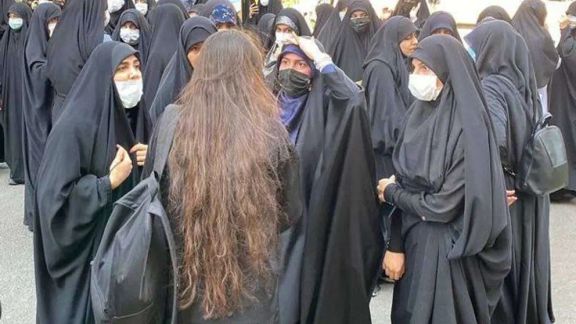
The Iranian government said on Tuesday that the implementation of the controversial "Chastity and Hijab" law has been postponed due to the potential unrest it may spark.

The Iranian government said on Tuesday that the implementation of the controversial "Chastity and Hijab" law has been postponed due to the potential unrest it may spark.
Fatemeh Mohajerani, the spokeswoman for the administration of President Masoud Pezeshkian, said at a press conference: "Some clauses of the law could have had social consequences, and with these considerations and with wisdom, it was postponed."
She said that the law has been postponed twice.
The announcement comes despite repeated calls from hardliners for the law’s swift enforcement in a bid to combat the country's mass hijab rebellion in the wake of the 2022 Woman, Life, Freedom uprising.
In mid-December, Iran's vice-president for parliamentary affairs, Shahram Dabiri, announced that the administration is drafting a bill to amend the hijab law, which the Parliament Speaker Mohammad Bagher Ghalibaf had promised would take effect on December 13.
Fearing social unrest, Mohajerani said no alternative legislation regarding hijab is currently under consideration.
Expert work has begun within the Presidential Legal Department, but she indicated that formulating new legislation on the issue would be a lengthy process.
The government's delay in implementation suggests a recognition of the potential for further social unrest, particularly given the widespread protests that followed the death of Mahsa Amini in 2022 in the custody of Iran’s so-called morality police.
However, the pause is not reflective of any shift in the government's stance on the issue. "Iranian women have been chaste since ancient Iran," Mohajerani said.
The final text of the so-called "Support for Family through Promoting the Culture of Chastity and Hijab" law, published by Iranian media in December, has faced widespread criticism and protests.
In December, UN experts expressed their concerns about the law's implications in a statement in December.
Human Rights group Amnesty International also condemned the law, saying it would intensify the repression of women and girls and warning that Iranian authorities are attempting to solidify the existing system of oppression against women.
According to the US-based Human Rights Activists News Agency (HRANA), over 30,000 women in Iran faced legal action in 2024 for defying mandatory hijab.
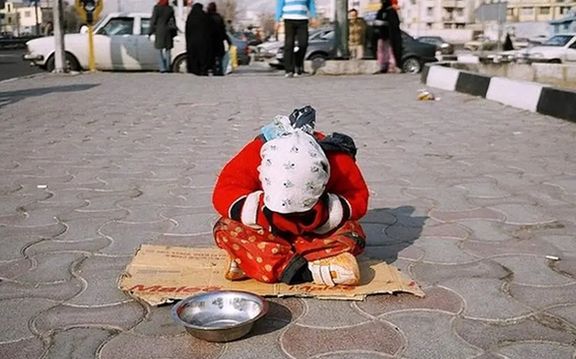
As voices associated with Iran’s ruling establishment increasingly advocate for negotiations with the United States, a prominent newspaper has warned that up to 50% of the population is now living below the poverty line.
Aftab News observed that “Given Trump’s return and the persistence of a faction within the country opposing any structural reforms or negotiations to lift sanctions and expand global relations, some economists predict tougher living conditions for the majority of Iranians in 2025.”
The newspaper quoted a lawmaker specializing in budgetary issues, highlighting the stark economic challenges faced by ordinary Iranians. According to the report on Tuesday, the average monthly income for most Iranians is approximately $150, while the minimum budget required for the survival of a small family is around $450. In large cities, rent alone accounts for $250 to $300 per month, further straining household finances.
Professionals and government officials earn slightly higher salaries, but another newspaper reported that even general practitioners are now struggling to make ends meet.
The crisis deepened as Iran's currency, the rial, suffered a dramatic decline, dropping from 600,000 to the dollar to 800,000 since September—a staggering 33% depreciation. This sharp fall immediately eroded the purchasing power of citizens on fixed incomes, as prices surged in step with the weakening currency.
The newspaper estimated that, based on these figures, approximately 50% of the population now lives below the poverty line, defined as having a monthly income of less than $450.
After a hiatus of almost two years, Iran’s Central Bank recently announced the annual inflation rate, claiming that it has dropped to 36%, its lowest level in recent years. Some experts speaking to the media dismissed this figure as misleading and contrary to economic realities in the country.
In another article, Aftab News drew a comparison between Iran and African countries, particularly Morocco, highlighting that without the advantage of oil and gas resources, average monthly salaries in Morocco are around $2,000—more than ten times the average salary in Iran.
The fact that Morocco is both an Islamic country and a monarchy is unlikely to go unnoticed by Iranians reading the article. Many in Iran already reflect with nostalgia on the pre-revolution era, when the country headed by the Shah was considered the leading economic power in the Middle East.
The Islamic Republic newspaper, founded by Ali Khamenei four decades ago, warned on Tuesday that Iran is confronting a hostile regional environment due to the change of government in Syria and called on authorities to remain attuned to public sentiment.
“The only way to navigate the challenging crossroads we are currently facing is for governance to rely on popular support. This support can only be secured by prioritizing the people and respecting their rights in all material and spiritual aspects,” the newspaper said.
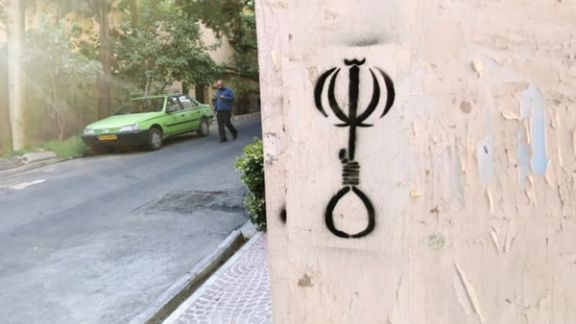
Iran executed 901 people in 2024, including 31 women, marking a rise in capital punishment cases, the United Nations human rights office said on Tuesday.
Most executions were for drug-related offenses, but political dissidents and individuals linked to the 2022 protests—sparked by the death of 22-year-old Mahsa Amini in morality police custody—were also among those executed, the UN said.
"It is deeply disturbing that yet again we see an increase in the number of people subjected to the death penalty in Iran year-on-year," said United Nations High Commissioner for Human Rights Volker Türk. "It is high time Iran stemmed this ever-swelling tide of executions."
The 901 executions in 2024, compared with 853 in 2023, represent the highest annual number since 2015, when 972 people were executed, according to the UN.
Of the 31 women executed last year, many faced charges of murder, often stemming from circumstances of domestic violence, child marriage, or forced marriage, said UN rights office spokesperson Liz Throssell during a Geneva briefing Tuesday. She added that this was the highest number of female executions in at least 15 years.
Since the start of 2025, Iran has executed at least 15 prisoners in various prisons, the US-based Human Rights Activists News Agency (HRANA) reported on January 2.
At least 54 political prisoners are currently facing execution across various prisons in Iran, according to HRANA.
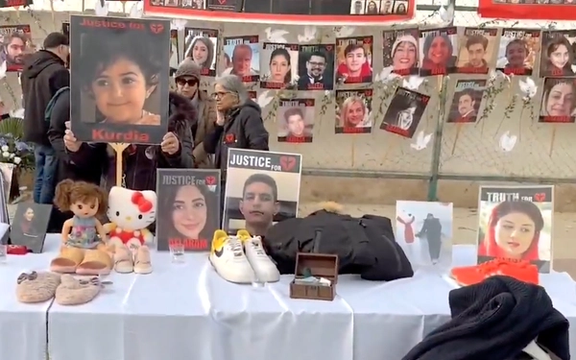
Families of those killed in the downing of Flight PS752 gathered at the crash site in Shahedshahr, Tehran Province, on the fifth anniversary of the tragedy under the slogan "Never Forget, Never Forgive."
The Ukrainian passenger plane was shot down by missiles from the Islamic Revolutionary Guard Corps (IRGC) on January 8, 2020, shortly after takeoff, killing all 176 people onboard, including the crew.
For three days after the incident, authorities concealed the fact that the plane had been shot down, repeatedly claiming the crash was an accident.
Masoud Ebrahim, whose daughter Niloufar was one of the victims, began his speech with the phrase “Woman, Life, Freedom” and honored “all those who have lost their lives and suffered oppression over the past 46 years.”
He said, “We didn’t know that everyone in [Khamenei’s] circle had gathered to decide to down the plane.”
Families brought items belonging to their loved ones to the site to honor their memories, videos of the gathering shared by the Association of Families of PS752 Victims.
Memorial ceremonies for the victims were also held in multiple countries, including Canada and Sweden, as they have been every year since the tragedy.
The families' association released a statement Tuesday on X, referring to "the great injustice that continues".
"Five years of crime, five years of lies, five years of repression, five years of longing, five years of standing firm, five years of reminding, and five years of the burning flame of anger that will not subside," the group said.
Legal battle continues
Lawyer Mahmoud Alizadeh Tabatabai, representing several victims’ families, criticized how Iranian judicial authorities handled the case. Speaking to Iran’s Didban news, he said the families were denied access to the plane’s wreckage and the full legal case file.
In April 2023, a Tehran military court sentenced the missile operator responsible for downing the plane to 13 years in prison and ordered him to pay compensation. During the investigation, Amir Ali Hajizadeh, the IRGC Aerospace Commander, was summoned as a suspect but was cleared of charges.
According to Tabatabai, Hossein Salami, the IRGC Commander-in-Chief, said in Iran’s parliament that “national interests required this missile strike.”
Tabatabai said that during the trial, a prosecutor’s representative told some families, “We did it, and it was the right thing to do.”
While 10 people were convicted in connection with the case, many families felt the process lacked transparency and withdrew their complaints. However, some, including Mohsen Asadi Lari and his wife, continued to appeal the ruling.
The Supreme Court reviewed the case and identified 12 flaws in the decision, returning it to the First Military Court for retrial. However, Tabatabai said, “Six months have passed, and no further action has been taken.”
He added, “We are following up regularly, but the court keeps delaying, saying ‘today or tomorrow,’ and we are waiting for the trial to restart in the First Military Court".
Military courts in Iran operate under the Judiciary Organization of the Armed Forces, a specialized branch of the judicial system for handling cases involving military personnel. The organization includes its own prosecutor’s office and specialized courts to oversee cases within its jurisdiction.
International actions
The four affected countries—Ukraine, Canada, Sweden, and the UK— have filed a formal complaint with the International Court of Justice and also the International Civil Aviation Organization against Iran. The complaints allege that the downing of the plane was deliberate.
"In the coming months, we envisage the response of the International Civil Aviation Organization (ICAO) and the convening of an initial session at the International Court of Justice (The Hague), and we hope the path of truth-finding will be properly followed," the families' association's statement read.
Flight PS752 was downed during a period of heightened tensions between Iran and the United States, following Iran's missile attack on US military bases in Iraq.
The missile attack was carried out in retaliation for the US killing of Iranian Quds Force commander Qassem Soleimani in Baghdad just days earlier.
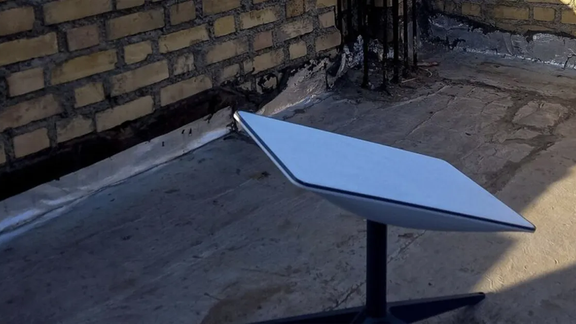
The number of Starlink satellite internet users in Iran has surpassed 100,000, a senior industry official said on Monday, underscoring the keenness of Iranians to defy curbs on their access to the outside world.
Satellite internet usage in the country increased 20-fold in 2024 with over 30,000 unique users contributing to the surge, the head of the Internet and Infrastructure Committee at the E-Commerce Association Pouya Pirhosseinlou said.
"Over 30,000 unique users are utilizing satellite internet, suggesting that the total number of satellite internet users exceeds 100,000," he told news agency ILNA. "This indicates that we will likely witness further growth in the use of this technology in the country in the future."
The primary appeal of Starlink lies in its unrestricted free access and high speed, two features largely absent in Iran, which ranks near the bottom of the global Internet Freedom Index.
Starlink gained prominence in Iran following the 2022 Woman, Life, Freedom protests, which erupted after the death of a young woman, Mahsa Amini, in morality police custody for hijab.
The government responded to the demonstrations with internet blackouts and extensive filtering, prompting many Iranians to turn to satellite services like Starlink for unrestricted online access.
In December, Forbes estimated that 20,000 Iranians were using Starlink despite its official prohibition.
Now, with over 100,000 users, the service has become a critical tool for bypassing censorship and government-imposed disruptions.
The US government’s decision to lift certain export restrictions on internet services to Iran in 2022 enabled billionaire Elon Musk-owned SpaceX to provide Starlink access in the region.
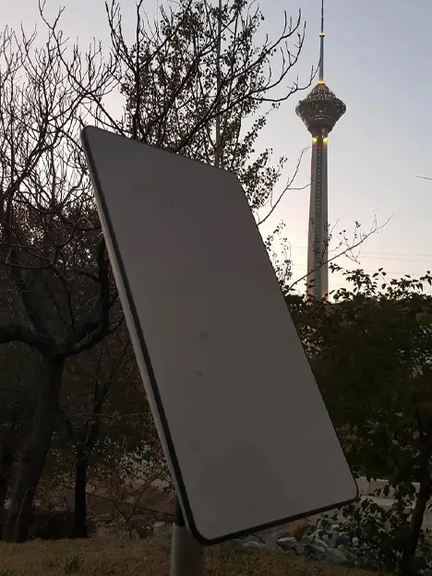
Starlink is prohibited in Iran. Government censors have blocked access to apps such as Telegram, Instagram and X as well, and authorities frequently arrest individuals for online statements deemed anti-Islamic or critical of the Islamic Republic.
Pirhosseinlou acknowledged the benefits of satellite internet but warned of its economic impact: “Using Starlink is the most expensive method of internet access, which disrupts the communications economy, drains hundreds of millions of dollars in foreign currency from the country and diminishes hope for domestic improvements to internet services.”
Despite the high costs, the growing adoption of Starlink reflects dissatisfaction with local alternatives, including Iran’s government-controlled fiber-optic internet.
Meanwhile, Iran's government has lobbied the International Telecommunication Union (ITU) to exclude the country from satellite internet coverage. Efforts to curb Starlink's influence highlight its role as a contentious element in Iran's ongoing struggle between state control and digital freedom.
The rights organization Freedom House ranked Iran as having the world’s third most restrictive internet environment, criticizing the Islamic Republic for criminalizing online dissent in an effort to increase voter turnout and legitimize presidential polls.
"(Authorities) criminalized any content that encouraged election boycotts or protests, or that criticized candidates ... (for) higher voter turnout to make the election seem legitimate, despite the arbitrary disqualification of most candidates," the group said in a report in October.
The expanding reach of Starlink represents a shift in Iran's internet landscape, offering a lifeline for those seeking unrestricted online access amidst heightened governmental control and censorship.

US President-elect Donald Trump has agreed to temporarily halt the extradition of an Iranian detained in Milan, Italian media said on Monday after Iran International reported that Tehran tied an Italian reporter’s release to the Iranian detainee’s freedom.
Mohammad Abedini Najafabadi, accused of transferring drone technology to Iran, was arrested at Milan Airport on a US warrant. Washington says the technology was used in an attack in February near the Jordan-Syria border that killed three American soldiers, an assertion Iran denies.
“The freezing of the United States' extradition request to Italy for Iranian Mohammad Abedini-Najafabadi, detained since December 16 in Milan's Opera prison on an American warrant, was the primary objective of Prime Minister Giorgia Meloni's swift visit to Mar-a-Lago, the Florida residence of US President-elect Donald Trump, who is set to be sworn in on January 20,” wrote the Italian newspaper Il Giornale on Monday.
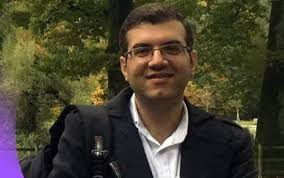
The suspension gives Italy a brief window to negotiate the release of Italian journalist Cecilia Sala, detained in Tehran since December 19.
“The tipping point may come on January 15, when the Court of Appeal in Milan is set to rule on the request for house arrest for Abedini. This decision could allow the Italian government to advocate for a similar measure for Sala,” added Il Giornale.
Tehran made clear to Rome that the freedom of the Italian reporter detained in Iran depends on Italy's release of Abedini, a source familiar with discussions between the journalist's family and the Italian government told Iran International.
Iran, the source said, is prepared to free Sala “on humanitarian grounds" if the Italian government drops the extradition proceedings against Abedini and grants his release from Milan's brooding La Opera prison.
Iran denies link between Sala and Abedini cases
Tehran has denied any connection between the two detentions. Iranian Ministry of Foreign Affairs spokesperson Esmaeil Baghaei said on Monday, “These two issues are completely unrelated. The Italian journalist was detained for violating Iranian laws, while the Iranian individual is in custody for circumventing US sanctions.”
The Iranian embassy in Rome also claimed Sala is being treated humanely, while urging Italy to expedite action for Abedini’s release.

Tensions over Sala’s detention escalated after the Italian foreign ministry summoned Iran’s ambassador in Rome, Mohammadreza Sabouri, on January 2 to demand her immediate release.
Domestically, Prime Minister Giorgia Meloni’s diplomatic efforts have drawn praise. Deputy Prime Minister Matteo Salvini posted on X: “Well done Giorgia Meloni for visiting Donald Trump to talk about peace, industrial and commercial cooperation, security, and the freeing of Cecilia Sala.”
Milan’s Chief Prosecutor has opposed Abedini’s conditional release, while Meloni is scheduled to meet US President Joe Biden in Rome on January 12 to further discuss Sala’s detention.
The temporary suspension of Abedini’s extradition shows the high stakes for Meloni’s government torn between Washington and Tehran as it navigates the complexities of securing Sala's release, addressing what rights groups and nations such as France have branded as Iran’s 'state hostage-taking'.